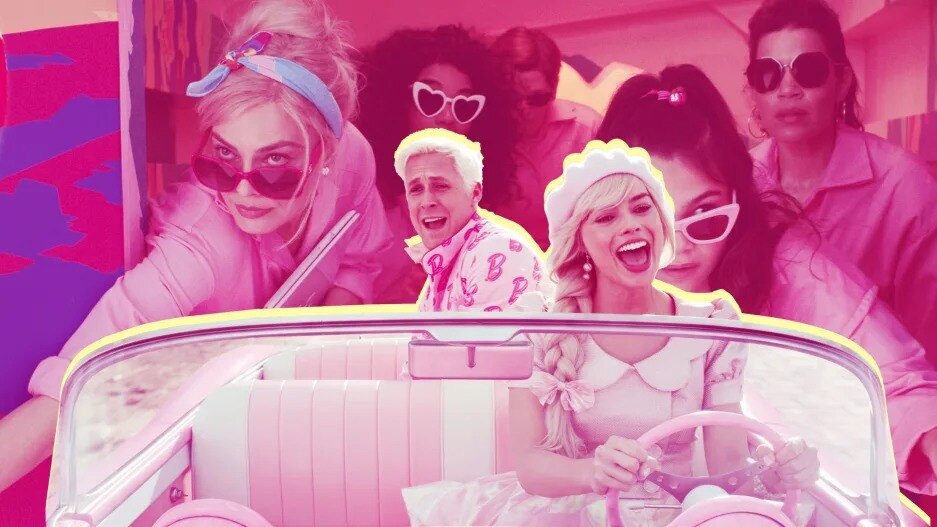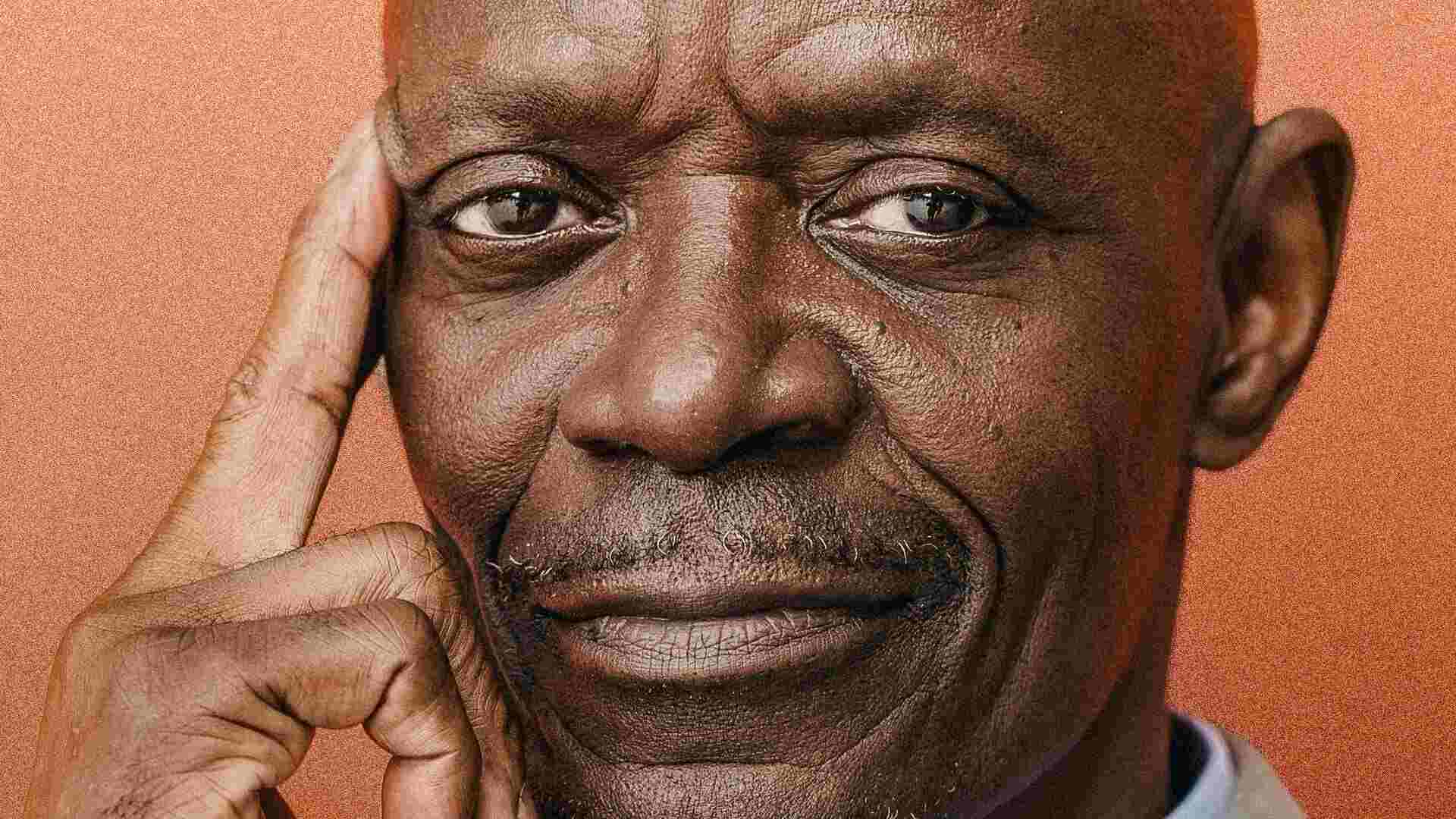- | 9:00 am
4 things the Barbie movie teaches us about resilience and leadership
There are inspiring lessons to be learned from this fun movie, says the writer.

(If you haven’t snagged Barbie tickets yet, proceed with caution—there are mild spoilers ahead.)
Honestly, I didn’t expect to like the Barbie movie. From all the buzz, it seemed campy and fun, but I tend to roll my eyes at that type of entertainment and certainly not seek it out. Yet, the hype was so intriguing, and Mattel’s marketing strategy so omnipresent, that I just had to see it.
Two hours after nabbing a ticket plus a small popcorn and a Coke Zero, I had laughed and cried (and regretted that I hadn’t worn pink, like many of the other moviegoers). In addition to becoming an unlikely Barbie fan, I was inspired by the movie’s inspirational messages of resilience and strength. Here are my four takeaways:
NEVER GIVE UP
If you’re a woman, you know the system can be rigged. While we’ve come a long way over the past few decades, we’ve also lost significant rights. One of the movie’s most poignant moments comes from the character Gloria, a woman in the real world who works at Mattel. Her dark fantasies about Barbie having an existential crisis set the stage for the movie’s plot.
Describing what it’s like to be a woman today, Gloria delivers a moving monologue, saying, “[W]e have to always be extraordinary, but somehow we’re always doing it wrong. . . . You have to never get old, never be rude, never show off, never be selfish, never fall down, never fail, never show fear, never get out of line. It’s too hard! It’s too contradictory and nobody gives you a medal or says thank you. And it turns out, in fact, that not only are you doing everything wrong, but also everything is your fault.”
In Barbieland, women rule the world. After traveling to the real world, Barbie discovers the opposite is true. She understands Gloria’s frustrations and realizes that life isn’t easy. But she doesn’t give up. When the Mattel CEO tries to get her to go back into the box, she considers obeying, then decides to run, sending an encouraging message to challenge the norms.
YOU CAN BE ANYTHING YOU WANT TO BE
In the movie, Sasha, Gloria’s tween daughter, calls Barbie out for representing an outdated ideal. “You’ve been making women feel bad about themselves since you were invented,” she says.
Less than a decade ago, Barbie did indeed have an image problem. The doll no longer represented the values that many parents wanted to impart to their daughters. Mattel gave her a brand makeover in 2014. While keeping the traditional (aka stereotypical) Barbie, the company created new versions to showcase different ethnicities and body shapes as well as aspirational careers, like a pilot and veterinarian.
In the movie, Barbie reinforces the idea that you can still be anything you want to be. “Barbie is a doctor, and a lawyer, and so much more than that,” she tells Gloria and Sasha. “Basically, everything that men do in your world, women do in [Barbieland].”
Part of the reason you can be anything you want to be is due to those who came before you. Near the end of the movie, Ruth Handler, the woman who created the Barbie doll in 1959, takes a very confused Barbie aside to explain her “origin story.” Handler tells Barbie she was named for her daughter, Barbara. “We mothers stand still so our daughters can look back to see how far they have come,” Handler says.
DREAM BIG
If you can be anything you want, your ideas can—and should—be big. At the movie’s end, Barbie realizes she wants to leave her Dreamhouse life behind for the real world.
“I want to do the imagining, not be the idea,” she says. “I want to be a part of the people that make meaning, not the thing that is made.”
Moving from a utopian Barbieland, where every day is the best day ever, to a place filled with challenges is bold and inspiring. It’s a reminder that accomplishments can hold greater meaning when you have to work for them. Wins also feel more fulfilling when there are struggles and even failures that were overcome.
YOU’RE “KENOUGH”
Early in the movie, the narrator tells the audience, “Barbie has a great day every day, but Ken only has a great day if Barbie looks at him.”
Ken’s sense of self comes only from Barbie’s validation, which she doesn’t often give. To her, he’s more of an accessory than a person with real feelings. After Ken visits the real world and discovers patriarchy, he treats Barbie like she’s treated him. And when he returns to Barbieland, he teaches the other Kens there to do the same to their Barbie partners. While it works at first, the Barbies eventually discover that they have free will to make their own choices, which include walking away from their Ken.
Ken tells Barbie, “I just don’t know who I am without you.” Barbie says, “You’re Ken.” To which Ken says, “But it’s Barbie and Ken. There is no just Ken.” And Barbie says, “What if it’s Barbie and it’s Ken.”
Barbie tells him he has to figure out who he is without her. This scene is a reminder that it’s easy to seek our self-worth from relationships or roles. And it can be devastating to your sense of self when those relationships or roles end. Ultimately, Ken realizes that he doesn’t need Barbie’s approval. He can be anything he wants, and being worthy comes from within. He is enough (or as his hoodie says, “I am Kenough”).
Barbie’s anthem in the movie is the Indigo Girls’ “Closer to Fine.” The lyrics say,
“There’s more than one answer to these questions
Pointing me in a crooked line
And the less I seek my source for some definitive
Closer I am to fine.”
It’s a reminder that strength, resilience, and leadership skills all come from within, whether you fit the mold or not.







































